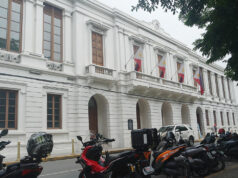Banks’ loans counted as reserves hit P5.73 billion

BANKS’ LOANS to micro, small and medium enterprises (MSMEs) and large companies that count as compliance with reserve requirements (RR) stood at around P5.73 billion as of Jan. 11, latest central bank data showed.
Thrift banks (TBs) and rural and cooperative banks (RCBs) lent P5.7 billion to MSMEs and P27.7 million to eligible large enterprises (LEs) as alternative compliance with the RR for the reserve week ending Jan. 11, the Bangko Sentral ng Pilipinas (BSP) said in a report.
These accounted for 0.4% and 0.002% of total required reserves for the said reserve week, respectively.
According to the BSP, banks continue to use the relief measure despite its expiration for universal and commercial banks on July 1, 2023.
“TBs and RCBs can still utilize their outstanding loans to MSMEs and LEs as alternative compliance with the RR until such loans are fully paid, but not later than Dec. 31, 2025, subject to certain conditions,” the BSP said.
During the coronavirus pandemic, the central bank allowed banks to count their loans to MSMEs and pandemic-hit large enterprises as part of their compliance with reserve requirements.
The unwinding of the COVID relief measure coincided with the reduction in the reserve requirement ratios (RRR) on June 30, 2023 to facilitate the transition, supporting the banks’ continued compliance with the RRR and managing costs related to the policy adjustment.
In 2022, the Philippine banking system allocated P263.1 billion loans to MSMEs as compliance with the RRR. This was around 15.9% of the total required reserves.
Likewise, banks extended P72.9 billion in loans to eligible large enterprises as alternative compliance. This was about 4.4% of the total required reserves for the same reserve week.
The loans disbursed by banks are still within the caps imposed by the BSP — P300 billion for MSMEs and P425 billion for large companies.
The BSP requires banks to keep a minimum amount of cash reserves with the central bank determined by their deposit liabilities. — Keisha B. Ta-asan



